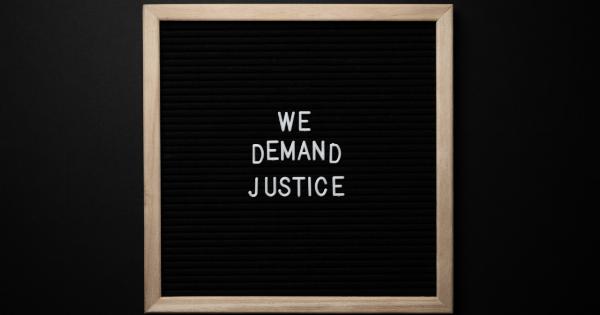Non-discrimination is a fundamental principle that upholds human rights and ensures equality for all individuals, regardless of their race, gender, religion, sexuality, or any other characteristic.
On the 1st of March each year, people around the world come together to observe and celebrate the Day of Non-discrimination. This day serves as a reminder of the importance of combating prejudice, bias, and inequality, and advocating for equal treatment and opportunities for all.
The Origins of the Day of Non-discrimination
The Day of Non-discrimination has its roots in the broader movement against discrimination and inequality that emerged in the 20th century.
Throughout history, various communities and individuals have been subjected to systemic discrimination and marginalization based on their identities. However, it was during the mid-20th century that significant strides were made in the fight for equal rights.
The Universal Declaration of Human Rights, adopted by the United Nations General Assembly in 1948, recognized the inherent dignity and equal rights of all individuals.
This landmark document laid the groundwork for the protection of human rights worldwide and has played a crucial role in shaping the observance of the Day of Non-discrimination.
The Significance of the Day
The Day of Non-discrimination serves multiple purposes. Firstly, it is a rallying point for individuals and organizations dedicated to promoting equality and combating discrimination.
It provides an opportunity for people to come together, share their experiences, and learn from one another. Additionally, the day is an occasion to raise awareness about discriminatory practices and their impact on individuals and communities.
The observance of the Day of Non-discrimination also serves as a reminder for governments, institutions, and societies to introspect and evaluate their policies and practices.
It calls for the implementation of measures to eliminate discrimination and ensure equal opportunities for all members of society. The day offers a chance to assess progress made, identify gaps, and strategize for a more inclusive future.
Key Issues
On this important day, it is essential to highlight key issues related to discrimination that persist in contemporary society. By educating ourselves about these issues, we can work towards addressing them effectively.
Some of the most significant issues include:.
1. Racial Discrimination
Racial discrimination continues to plague communities around the world, with minority groups being disproportionately affected. It is imperative to challenge racist ideologies and stereotypes, and promote racial equality and understanding.
2. Gender Discrimination
Gender discrimination refers to the unequal treatment of individuals based on their gender. Women, in particular, face various forms of discrimination, including wage gaps, limited access to education and healthcare, and violence.
Efforts must be made to dismantle patriarchal systems and promote gender equality.
3. LGBTQ+ Discrimination
Members of the LGBTQ+ community often face discrimination, prejudice, and legal barriers due to their sexual orientation or gender identity.
The Day of Non-discrimination serves as a platform to advocate for the rights and equal treatment of LGBTQ+ individuals.
4. Religious Discrimination
Religious discrimination involves treating individuals unfairly based on their religious beliefs or practices. It is crucial to foster an environment of religious tolerance, respect, and acceptance.
5. Disability Discrimination
People with disabilities frequently encounter discrimination in various aspects of life, ranging from access to education and employment to physical barriers in public spaces.
The Day of Non-discrimination emphasizes the need for inclusivity and accessible environments for people with disabilities.
6. Age Discrimination
Age discrimination affects both the young and the elderly. It involves treating individuals differently based on their age, limiting their opportunities and access to resources.
Promoting intergenerational understanding and combating ageism are crucial for an inclusive society.
The Role of Education and Awareness
Education and awareness play a vital role in combating discrimination and promoting non-discrimination. Schools, colleges, and universities must prioritize teaching empathy, understanding, and respect for diversity.
Additionally, public campaigns, workshops, and the media can help raise awareness about the negative consequences of discrimination and the benefits of a non-discriminatory society.
Moreover, legislative measures are necessary to protect individuals from discrimination and to ensure that appropriate action is taken against perpetrators.
Strong laws and policies can form the backbone of efforts to create a fair and inclusive society.
Conclusion
The observance of the 1st of March as the Day of Non-discrimination is a testament to our commitment to building a fair, just, and inclusive world. It serves as a reminder of the progress made over the years and the challenges that lie ahead.
By addressing discriminatory practices and promoting equality, we can create a society where every individual is valued and treated with dignity and respect.





























